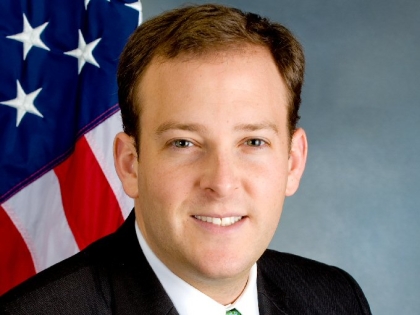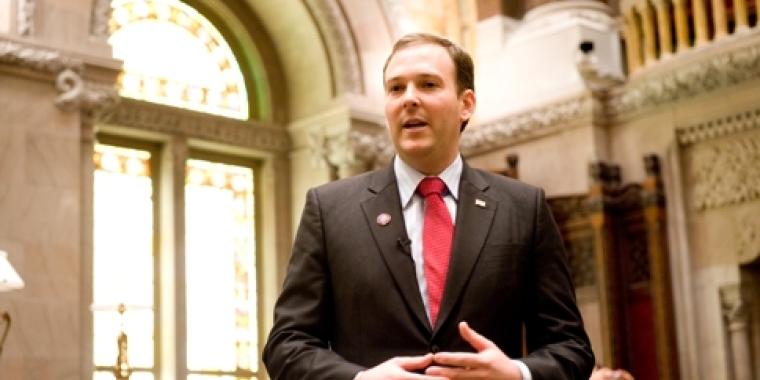
After Walder: an MTA to-do list
After Walder: an MTA to-do list
By LEE M. ZELDIN
Last Updated: 3:46 AM, July 25, 2011
Posted: 10:18 PM, July 24, 2011
The sudden resignation of MTA Chair man Jay Walder gives Gov. Cuomo a tremendous chance to improve the agency. While the MTA has made much progress since Walder's arrival, much more work remains. Walder aggressively pursued cost savings -- including those behind his recent announcement that he'd reduced the MTA's capital deficit by another $2 billion. But the finances of the MTA's capital and operating budgets remain dire.
The taxpayers of the 12-county MTA region need those of us in government to face the host of difficult decisions needed to protect the nation's largest mass-transit system.
Cuomo has already shown he can make difficult but necessary fiscal decisions. Judging from his performance in his first legislative session, his choice for the next MTA chairman will not disappoint. Here are 10 things the governor's nominee should consider, both during the confirmation process and after starting the job:
1) Prepare for life after the MTA Payroll Tax. Walder called it "impossible" -- which was simply the wrong answer. Many of us in the Legislature will fight until this ill-conceived tax on jobs is repealed; last month, the state Senate, in a bipartisan 40-22 vote, passed my bill to phase out the tax.
2) Scale back all MTA administrator salaries, including the new chairman's. The number making over $200,000, especially Walder at $350,000, is insulting to all taxpayers in the MTA region.
3) Commit to staying in the position through at least December 2014.
4) Agree to new contracts with the MTA's unions that reflect the realities of the agency's poor and unstable finances.
5) Eliminate overtime abuse. Comptroller Tom DiNapoli's August 2010 audit revealed a "culture of acceptance" at the MTA enabling more than $600 million in overtime abuse in one year.
6) Pursue more public-private partnerships and pilot projects to assess competitive-bidding possibilities for NYC express-bus contracts. Multiple outside studies suggest real savings are possible here.
7) Reduce the cash and investment float. The MTA's Dec. 31, 2010, Consolidated Balance Sheets indicate a $200 million "Cash" balance and a $1.431 billion "Unrestricted Investments" balance. Is a $1.631 billion balance absolutely necessary? A reduction would help close the MTA's capital deficit.
8) Improve the process for approving personal and miscellaneous service contracts. A 2009 audit by DiNapoli found that these contracts grew from $315 million in 2006 to $881 million in 2008. At that time, it was noted that a 10 percent reduction in consultant contracts would save $176 million. This should be reassessed for fresh savings opportunities.
9) Reduce the excessive number of managers and supervisors. More than 10,000 of the MTA's 66,000 employees are now managers and supervisors.
10) Sell real estate. The Dec. 31 Balance Sheets further noted that "Net Capital Assets" totaled $50.133 billion. The MTA is trying to sell its Madison Avenue headquarters and two neighboring properties, but many more opportunities remain.
DiNapoli's several audits of the MTA have uncovered potential savings with regards to the MTA's real-estate portfolio, personal and miscellaneous service contracts, overtime costs and more. Support is building in the Legislature for a broader, more expansive audit, which should prove well worth the time and trouble.
There is room for some optimism: An important source of MTA funding, the real-estate-transfer tax, has started to exceed estimates. As volatile and unpredictable as the real-estate market has been, the agency's problems will ease considerably if this trend continues.
The first priority must be to hold the MTA accountable for its waste and inefficiency. For all the praise that some are heaping on Walder, the fact remains that the agency still desperately lacks credibility. The public has placed its faith and trust in the Legislature and the governor to push the MTA to improve its finances without dramatically cutting services or drastically increasing fares. Hopefully, the next chairman will fully deliver.
Lee M. Zeldin is a state senator represent ing the Third District in Suffolk County.
Read more: http://www.nypost.com/p/news/opinion/opedcolumnists/after_walder_an_mta_to_do_list_sVPl6jlzsgqO3xlFL0c8nJ#ixzz1T7sj5ptJ
